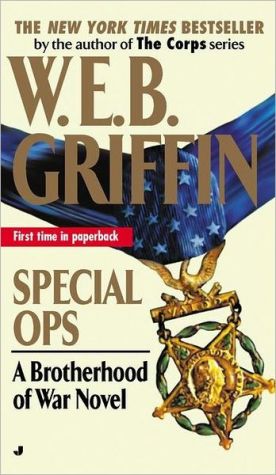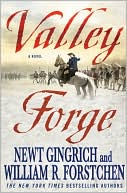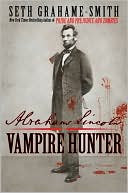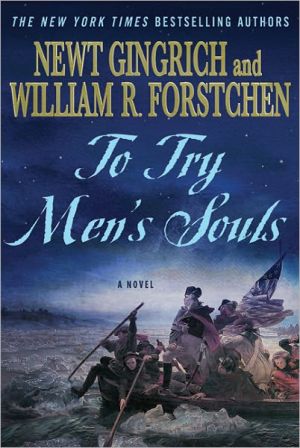Special Ops (Brotherhood of War Series #9)
W.E.B. Griffin returns to the series that launched his phenomenal career— in an explosive new novel that pits a team of Special Forces warriors against the legendary revolutionary Che Guevara.\ \ \ A vicious madman is on a kidnapping and rape spree. Inspector Peter Wohl, commander of the new Special Operations task force, is determined to stop the maniacal reign of violence, facing off against a desperate public, a hostile press and reluctant witnesses.\
Search in google:
W.E.B. Griffin returns to the series that launched his phenomenal career— in an explosive new novel that pits a team of Special Forces warriors against the legendary revolutionary Che Guevara.Publishers WeeklyNewly initiated readers of Griffin (The Fighting Agents ) will find the latest in the Brotherhood of War series strongly reminiscent of modern American military classics From Here to Eternity and The Winds of War. Longtime Griffin faithful, eager since 1988's The Aviators for the next BOW installment, will deem this '60s action drama well worth the wait. Fresh from disobeying orders on a rescue mission to the Congo in November 1964 (and receiving two medals for his heroic efforts), former airline pilot--now Green Beret Sgt.--Jack Portet is promoted to lieutenant and assigned to Top Secret Special Operations under Col. Sanford T. Felter, adviser to the president. CIA sources report that Cuban revolutionary Che Guevara is going to the Congo to establish a major Communist foothold in Africa, before moving on to South America. LBJ, with counsel from Felter, decides that it would be better politics to humiliate Guevara in the Congo than to elevate him to martyr status by killing him. To that end, Portet, Felton and Maj. George Washington "Father" Lunsford persuade Joseph Mobutu, president of the Republic of the Congo, to allow a crack unit of African-American Green Berets, all fluent in Swahili, to carry out the assignment. The Special Ops manage to chase Che out of Africa only to see him try to gain power in Bolivia. His writing enriched by new, fully developed characters, Griffin also reprises BOW favorites Craig Lowell, Robert Bellmon, Geoff Craig and William "Doubting" Thomas as he renders an intricately layered, epic novel of the fascinating machinations of international politics and the life and passions of the men who make it happen. Given Griffin's track record with military adventure--he launched the Lieutenants of the Brotherhood in 1982--the audience for this rouser is ready and waiting. Copyright 2000 Cahners Business Information.
\ \ \ \ Chapter One\ \ \ Top Secret\ The Joint Chiefs Of Staff\ Washington, D.C.\ Duplication Forbidden Copy 4 of Seven.\ For Distribution By Officer Courier Only\ 8 November 1964\ Commanding General, United States Strike Command\ Commanding General, European Command\ Commanding General, United States Air Force, Europe\ Commanding General, Seventh United States Army\ 1. By Direction of the President; by Command of His Royal Highness, the King of the Belgians; and at the request of the government of the Republic of the Congo, a Joint Belgian-American Operation, "Operation Dragon Rouge," will take whatever military action is necessary to effect the rescue of American, Belgian and other European nationals currently being held hostage in Stanleyville, Republic of the Congo, by forces in rebellion against the legal and duly constituted government of the Republic of the Congo.\ 2. By Direction of the President, Counselor to the President Sanford T. Felter (Colonel, General Staff Corps, USA) is designated Action Officer, and will be presumed, in connection to military matters, to be speaking with the authority of the Joint Chiefs of Staff.\ 3. Operation Dragon Rouge is assigned an AAAA-1 Priority with regard to the requisitioning of personnel, equipment, and other U.S. military assets.\ 4. Addressees will on receipt of this directive immediately dispatch an officer in the grade of colonel or higher to the United States Embassy, Brussels, Belgium, where they will make themselves available to Colonel Felter or such officers as he may designate to represent him.\ For The Chairman, The Joint Chiefs OfStaff:\ Forbes T. Willis\ Forbes T. Willis\ Brigadier General, USMC\ Executive Officer, JCS\ TOP SECRET\ \ \ Chapter Two\ \ \ Brussels, Belgium\ 1320 Hours 11 November 1964\ Brigadier General Harris McCord, USAF, thought he had yet another proof, if one were needed, that life was full of little ironies. Sixteen hours before, he had been at the USMC Birthday Ball at the Hotel Continental in Paris, tripping the light fantastic with his wife. He had been wearing his mess dress uniform, complete with real medals rather than ribbons, and with more silver embellishments than a Christmas tree.\ Now that he was about to engage in what promised to be a really hairy exercise, he was wearing a somewhat baggy tweed jacket and well-worn flannel slacks. Just before he had left Paris, he had been told to wear civilian clothing. What he had on was all that had come back from the dry cleaners.\ There were five peers, most of whom he knew, at least by sight, all in civilian clothing in a none-too-fancy conference room in the U.S. Embassy, waiting for Colonel Sanford T. Felter and his staff. The whole damned continent had been socked in, and Felter's plane had had to sit down in Scotland to wait for Brussels to clear to bare minimums.\ He had heard of Felter, but he had never seen him in person and he was not very impressed with him when he walked into the room. Felter was small and slight, and wearing a baggy gray suit. He looked like a stereotype of a middle-level bureaucrat.\ "Sorry to keep you waiting, gentlemen," Felter said. He threw a heavy briefcase on the table, then took a key from his pocket and unlocked the padlock that had chained-more accurately, steel-cabled-it to his wrist.\ "My name is McCord, Colonel," General McCord said, and went to Felter and offered his hand.\ "I'm glad you were available, General," Felter said.\ As the others introduced themselves to Felter, McCord considered that. Felter knew who he was, and there was an implication that he had asked for him by name. That was flattering, unless you were rank-conscious, and thought that general officers should pick colonels, rather than the other way around.\ "I think the best way to handle this, gentlemen," Felter began, "is to give you a quick recap of what's going on in the Congo, specifically in Stanleyville, and then to tell you what we intend to try to do to set it right.\ "There are 1,600 people, Europeans, white people, held captive by Olenga's Simbas in Stanleyville. A four-column relief force-in other words, four different columns-under the overall command of Colonel Frederick Van de Waele of the Belgian Army has been charged with suppressing the rebellion, which includes, of course, the recapture of Stanleyville.\ "There have been some successes, as you probably know from your own sources, but there is no way that Van de Waele can make it to Stanleyville before the end of the month. That poses two problems. The first is the rebels' announced intention to kill the hostages, a threat we consider bona fide, before Van de Waele can get to them.\ "The second is that we have hard intelligence that since 20 October, at least two, and probably as many as four, unmarked Ilyushin-18 turboprop aircraft have been flying arms and ammunition into the Arau airbase in northern Uganda, from Algeria. Should they decide to do so, it would be easy for them to move the arms and ammunition to Olenga's forces. The possibility of their doing so, it is believed, increases as Van de Waele's mercenaries and ANC troops approach Stanleyville.\ "The President has decided, in consultation with the Belgian premier, Spaak, that the first priority is to keep those 1,600 people alive. The Belgians have made available the First Parachutist Battalion of their Paracommando Regiment. I'm familiar with it. The First Battalion was trained by the British Special Air Service people in World War II, and they pride themselves now on being just as good. The regiment is commanded by Colonel Charles Laurent, who is a fine officer, and who I suspect will lead the First Battalion himself.\ "They will be carried to Stanleyville in USAF C-130 aircraft. After the airfield is softened up with some B-26s, they will make a parachute landing and seize the airport. Part of the force will remain at the airport to make the airport ready to receive the C-130s, and the balance will enter Stanleyville, find the Europeans, and bring them to the airport. They will be loaded aboard the C-130s and then everybody leaves. No attempt will be made to hold Stanleyville. I don't want any questions right now. I just wanted to give the rough idea."\ "These gentlemen," Felter went on, turning to indicate the men he had brought with him, "are Lieutenant Colonel Lowell, Captain Stacey, Lieutenant Foster, and Sergeant Portet. They're Green Berets. Colonel Lowell is on the Strike staff, and wrote Dragon Rouge. Captain Stacey and the others have been practicing a somewhat smaller operation intended for Stanleyville, now called off. But they know the town, and rebel dispositions and the probable location of the Europeans, and I brought them along to share their expertise."\ The light colonel, Lowell, General McCord thought, looks like a bright guy, if not much like a Green Beret. Stacey looks like a typical young Green Beret captain, a hard charger, tough, mean, and lean. The black lieutenant, Foster, looks as if he could chew railroad spikes and spit tacks. The sergeant . . . there's something wrong with him: His face is scratched and blotchy and swollen. He can hardly see out of his eyes. And whatever's wrong with his face is also wrong with his hands.\ "Colonel Lowell," Felter went on, "as soon as we wind it up here, will be available to explain any questions you might have about the OPPLAN for Dragon Rouge. Stacey and Foster are going to go liaise with the Belgians." Felter looked at General McCord.\ "I'm going to give Sergeant Portet, to you, General. He's a former airlines pilot, with extensive experience in the Congo-including, of course, Kamina and Stanleyville-and equally important, because he was involved in getting the B-26- Ks to the Congo, he knows most, if not all, the Cubans who will be flying them."\ A former airlines pilot? McCord wondered. What's he doing in the army as a sergeant? A Green Beret sergeant?\ "Glad to have all the help I can get," McCord said.\ He had another thought: I wonder if "the airlines pilot" caught whatever is wrong with his face and hands in the Congo? I wonder if it's contagious?\ Felter looked around the room. "I have rough OPPLANs here. Study them overnight, and be prepared to offer fixes for what is wrong with the OPPLAN tomorrow morning." He paused, then went on. "That will be all for now, gentlemen. Thank you. But keep yourselves available."\ Felter and three of the three Green Berets started to leave the room. Lowell opened a well-stuffed briefcase. Felter caught the sergeant's attention and nodded toward General McCord. The sergeant went to General McCord.\ "Colonel Felter said I am to make myself useful, sir," he said.\ McCord resisted the temptation to offer his hand.\ "You've been into Stanleyville, Sergeant? Flown into Stanleyville?"\ "Yes, sir."\ "Purely as a matter of idle curiosity, I've looked at the Jepp charts," General McCord said. "I know we can get 130s in there."\ "Yes, sir, easily."\ "But I should have looked closer," McCord said. "How many will it take at once?"\ Portet's swollen face wrinkled in thought.\ "No more than six at once, sir," he said. "To be safe, I would say no more than five. There's not much of paved tarmac, and the unpaved areas won't take the weight of a C-130."\ "Colonel Felter said you were an airline pilot?"\ The rest of the question went unspoken, but Sergeant Portet answered, smiling wryly.\ "I got a postcard from my friends and neighbors at the draft board, General."\ Then, as if he was no longer able to resist an awful temptation, he put his hand up and scratched at the open blotches his face-with a hand that was similarly disfigured with suppurating sores.\ "What's wrong with your face, son?" General McCord asked. "And your hand?"\ "It's nothing, sir. A little rash."\ "A little rash, my ass," General McCord said. "How long has it been that way?"\ "It started on the plane from the States, sir," Jack said. "It's some kind of an allergy, probably. Nothing to worry about."\ "Where were you in the States? Bragg?"\ "Yes, sir."\ "Come with me, Sergeant," McCord said.\ He had seen the military attaché's office on the way to the conference room, and he led Jack there.\ There was a captain on duty, who glanced up and was not very impressed with what he saw. Two messy Americans in mussed clothing, one of them with what looked like a terminal case of scabies on his face.\ "Yes?" he asked.\ "I'm General McCord," McCord said, which caused the captain to come to his feet and to stand to attention.\ "Yes, sir."\ "Would you be good enough to get me the commanding officer of the nearest U.S. military medical facility on the telephone, please?"\ "General," Jack said. "I'll be all right. I don't want to get put in a hospital now."\ "I expected as much from a Green Beret," McCord said. "But I would be very surprised if they'll let you get on the airplanes, much less jump on Stanleyville. It looks to me as if the whole purpose of the Belgians is to keep Americans out of it."\ "My stepmother and stepsister are in Stanleyville, General. I'm going in."\ McCord looked at him. Before he could frame a reply, the captain handed him a telephone.\ "Colonel Aspen, sir."\ "Colonel, this is General McCord. This may sound a little odd, but I want you to dispatch, immediately, one of your best medical officers. I am in the U.S. Embassy, and I have a young sergeant with me who, if my diagnosis is correct, has been rolling around in poison oak." There was a pause. "No, Colonel, he cannot come there. I don't want to argue about this. I expect to see either you or one of your doctors here within twenty minutes."\ He hung the phone up, and turned to smile at Jack.\ "They give you a shot," he said. "It clears it up in a couple of hours. I had it in survival school in Utah a couple of years ago."\ "Thank you very much, sir," Jack said.\ "Don't get your hopes up about anything else, Sergeant," General McCord said. "I know they won't let you jump on Stanleyville."\ "Yes, sir," Jack said.\ "So tell me what else I should know about the airport in Stanleyville," General McCord said.\ \ \ Chapter Three\ \ \ Stanleyville, Republic of the Congo\ 0600 25 November 1964\ As a tradition, the men of the First Battalion, the Paracommando Regiment, Royal Belgian Army, continued to use the English-language jump commands the battalion had learned in England in World War II.\ "Outboard sticks, stand UP!" the jumpmaster ordered.\ The two outside files of men inside the USAF C-130, called "Chalk One" in the OPPLAN, stood up and folded up their nylon and aluminum pole seats back against the fuselage wall.\ "Inboard sticks, stand UP!"\ The two inside files rose to their feet and folded their seats.\ "Hook UP!"\ Everybody fastened the hook at the end of their static line to a steel cable.\ "Check static lines! Check equipment!"\ Everybody tugged at his own static line, to make sure it was securely hooked to the cable, and then they checked the harness and other equipment of the man standing in front of them-that is to say, in the lines that now faced rear, and led to the exit doors on either side of the aircraft.\ Now the jumpmaster switched to French: "Un minute!" and then back to English: "Stand in the door!"\ Chalk One was down to 700 feet or so, and all dirtied up, flaps down, throttles retarded, close (at 125 mph) to stall speed.\ "Go!"\ Sergeant Jack Portet, wearing the uniform of a Belgian paratrooper, was the sixth man in the port-side stick. The Belgians had been sympathetic to someone who wanted to jump on Stanleyville because his mother and sister were there.\ And if he got into trouble with the U.S. Army, c'est la vie.\ Jack felt the slight tug of the static line almost immediately after exiting the aircraft, and a moment later, felt his main chute slithering out of the case. And then the canopy filled, and he had a sensation of being jerked upward.\ There was not enough time to orient himself beyond seeing the airfield beneath and slightly to the left of him, and to pick out the twelve-story, white Immoquateur apartment building downtown before the ground seemed to suddenly rush up at him.\ He knew where he was now. He landed on the tee of the third hole of the Stanleyville golf course. He landed on his feet, but when he started to pull on the lines, to dump a little air from the nearly emptied canopy, there was a sudden gust of air and the canopy filled and pulled him off his feet.\ He hit the quick release and was out of the harness a moment later. He rolled over and saw that the sky was full of chutes from Chalk Two and Chalk Three.\ And then there were peculiar whistling noises, and peculiar cracking noises, and after a moment Jack realized that he was under fire.\ And there didn't seem to be anybody to shoot back at.\ And then, all of a sudden, there was: There were Simbas firing from, of all places, the control tower.\ He dropped to the ground, worked the action of the FN assault rifle, and took aim at the tower. As he lined his sights up, the tower disappeared in a cloud of dust. In a moment, he had the explanation. Two paratroopers had gotten their machine guns in action.\ Jack got to his feet and ran toward a trio of Belgian officers. When there was transportation, either something captured here, or the jeeps or the odd-looking three-wheelers on the C-130s that were supposed to land, the officers would get first crack at it. And he wanted to be there when it arrived. He had to get to the Immoquateur, and he needed wheels to do that.\ A sergeant drove up in a white pickup with a Mobil Oil Pegasus painted on its doors.\ One of the Belgian officers looked around and then pointed to Jack.\ "That one, l'Americain, knows the town. Put half a dozen men in the back, and make a reconnaissance by fire."\ And then he made his little joke.\ "You better hope you get killed," he said to Jack. "When Le Grand Noir, ["The Big Black," by which he meant, of course, Lieutenant Foster] was looking for you and couldn't find you, he said if you jumped with us, he was going to pull your legs and arms off, one by one."\ Jack smiled and got on the running board of the Mobil Oil pickup, holding the FN in one hand.\ But he was suddenly very frightened. Not of fighting, or even of dying, but of what he was liable to find when he got to the Immoquateur.\ They first encountered resistance three hundred yards down the road, just past the Sabena Guest House. A Simba wrapped in an animal skin, with a pistol in one hand, a sword in the other, charged at them down the middle of the road. Behind him came three others, armed with FN assault rifles, firing them on full automatic.\ The pickup truck screeched to a halt. Jack went onto his belly, his rifle to his shoulder. As he found a target, baffled to see that the Simba's weapon was firing straight up into the air, there was a short burst of 7-mm fire over his head. The Simba with the sword stopped in midstride and then crumpled to his knees. Before he fell over, a torrent of blood gushed from his mouth.\ The Simbas with him stopped and looked at the fallen man in absolute surprise. Then they stopped shooting and started to back up. There was another burst of the fire from the pickup, this time from several weapons. Two of the three Simbas fell down, one of them backward. The remaining Simba, the one in Jack's sights, dropped his rifle and ran away with great loping strides. There was another burst of fire from the truck, no more than four rounds from a paratrooper's assault rifle. The Simba took two more steps, then fell on his face to the left.\ Jack scrambled to his knees and turned to look for the truck. It was already moving. He jumped onto the running board as it came past, almost losing his balance as the driver swerved, unsuccessfully, to avoid running over the Simba who had led the charge with a sword.\ There was a furious horn bleating behind them, and the pickup pulled off the shoulder of the road. A jeep raced past them, the gunner of the pedestal-mounted .30-caliber Browning machine gun firing it, in short bursts, at targets Jack could not see.\ The pickup swerved back onto the paved surface, almost throwing Jack off.\ There was the sound of a great many weapons being fired, but none of the fire seemed directed at them. They reached the first houses. There were more Simbas in sight now, but none of them were attacking. They were in the alleys between the houses, and in the streets behind them.\ The jeep that had raced past them was no longer in sight, but Jack could still hear the peculiar sound of the Browning firing in short bursts.\ The Mobil Oil pickup truck came to an intersection and stopped. Jack looked at the driver.\ "You're supposed to be the fucking expert," the driver said to him. "Where do we go?"\ "Right," Jack ordered, without really thinking about it. The Immoquateur was to the right.\ The pickup jerked into motion.\ Fifty yards down the road, they came across the first Europeans. Three of them, mother, father, and a twelve- or thirteen-year-old boy, sprawled dead in pools of blood in the road, obviously shot as they had tried to run.\ Jack felt nausea rise in his throat, but managed to hold it down.\ Ahead, over the roofs of the pleasant, pastel-painted villas, he saw the white bulk of the Immoquateur.\ Then there was fire directed at them.\ The pickup screeched to a stop in the middle of the street. Jack felt himself going, tried valiantly to stop himself, and then, bouncing off the fender, fell onto the pavement, on his face.\ He felt his eyes water, and then they lost focus.\ Jesus Christ! I've been shot!\ He shook his head, then put his hand to his face. There was something warm on it.\ Blood! I've been shot in the face!\ He sat up. Someone rushed up to him. Indistinctly, he made out one of the paratroopers leaning over him, felt his fingers on his face.\ And then the sonofabitch laughed.\ "You're all right," he said. "All you've got is a bloody nose."\ He slapped Jack on the back and ran ahead of him.\ Jack's eyes came back into focus. He looked at his lap and saw blood dripping into it.\ He looked around and saw his assault rifle on the street, six feet from where he was sitting. He scurried on his knees to it, picked it up, fired a burst in the air to make sure it was still functioning, and then looked around again, this time at the Immoquateur. There were bodies on the lawn between the street and the shops on the ground floor. Simba and European. He got to his feet and ran toward the Immoquateur.\ Jack recognized one of the more than a dozen bodies on the lawn before the Immoquateur. It was the Stanleyville station manager of the Congo River Steamship Company. He had met him when they had shipped in a truck. He had been shot in the neck, probably, from the size of the wound, with a shotgun. The stout, gray-haired woman lying beside him, an inch-wide hole in her forehead, was almost certainly his wife.\ Jack ran into the building itself. There were two dead Simbas in the narrow elevator corridor. One of them had most of his head blown away. The other, shot as he came out of the elevator, had taken a burst in the chest. It had literally blown a hole through his body. Parts of his ribs, or his spine, some kind of bone, were sticking at awkward angles out his back.\ He was lying in the open elevator door. The door of the elevator tried to close on his body, encountered it, reopened, and then tried to close again.\ Jack laid his FN assault rifle against the wall, put his hands on the dead man's neck, and dragged him free. The elevator door closed, a melodious chime bonged, and the elevator started up.\ "Shit!"\ Jack went to the call button for the other elevator and pushed it. It did not illuminate. He ran farther down the corridor and pushed the service elevator call button. It lit up, but there was no sound of elevator machinery. He went back to wait for the first elevator.\ One of the Belgian paratroopers from the pickup truck came into the corridor, in a crouch, his rifle ready.\ "The sergeant said you are to come back to the truck," he said.\ "Fuck him, my mother's upstairs," Jack said.\ The Belgian paratrooper ran back out of the building. The elevator indicator showed that it was on the ninth floor. Then it started to come down.\ The Belgian paratrooper came running back into the building. Jack wondered if he was going to give him any trouble.\ "I got a radio," the Belgian said. "They are leaving us."\ Jack felt something warm on his hand, looked down and saw blood.\ The elevator mechanism chimed pleasantly, and the door opened. Jack stepped over the dead Simba. The Belgian paratrooper followed him inside and crossed himself as Jack pushed the floor button.\ The door closed and the elevator started to rise.\ It stopped at the fourth floor.\ A Simba in parts of a Belgian officer's uniform did not have time to raise his pistol before a burst from Jack's assault rifle smashed into his midsection.\ The noise in the closed confines of the elevator was painful and dazzling. Jack's ears rang to the point where he knew he would not be able to hear anything but the loudest of sounds for a long time. The paratrooper with Jack jumped, in a crouch, into the corridor and let loose a burst down the corridor. It was empty.\ The Simba he had shot had backed into the corridor wall and then slid to the floor, leaving a foot-wide track of blood down the wall. Jack thought he saw life leave the Simba's eyes.\ He took the Simba's pistol, a World War II-era German Luger, from his hand, stuffed it into the chest pocket of his tunic, and then backed into the elevator. The paratrooper backed into it after him. The chime sounded melodiously again, the doors closed, and the elevator started up again.\ When the door opened, they were on the tenth floor. There was no one there.\ Neither Jack nor the paratrooper moved.\ The chime sounded again, and the door closed.\ Jack reached out with the muzzle of his FN and rapped the rubber edge of the door. The door started to open again.\ Jack, copying what the paratrooper had done on the fourth floor, jumped, in a crouch, into the corridor. But the corridor was empty.\ Jack ran to the door of the Air Simba apartment. It was battered, as if someone had tried to batter his way in, and there were bullet holes in it. He put his hand on the doorknob. The door was locked.\ He banged on it with his fist.\ "Hanni!" he shouted. "Hanni, c'est moi! C'est Jacques!"\ There was no answer.\ He raised the butt of the FN and smashed at the door in the area of the knob. The butt snapped off behind the trigger assembly.\ He felt tears well up in his eyes. He pulled the trigger to see if it would still work, and there was another painful roar of sound, and a cloud of cement dust as the bullets struck the ceiling.\ He raised his boot and kicked at the door beside the knob with all his might. There was a splintering sound, and the lock mechanism tore free.\ Jack kicked it again, and it flew open. The Belgian paratrooper, in his now- familiar crouching stance, rushed into the apartment.\ There was not the expected burst of fire.\ Jack ran into the room.\ Hanni was standing in front of the bedroom door, white-faced.\ "Bonjour, madame," the Belgian paratrooper said.\ Hanni saw Jack.\ "Oh, my God! It is you! I thought I was losing my mind!"\ "Hanni!" Jack croaked.\ The bedroom door opened. Jeanine appeared.\ "Jacques!" she screamed.\ And there was somebody with her. Black. Wearing an animal skin.\ "Don't shoot!" Hanni screamed. "He's a friend!"\ "Jacques, don't!" Jeanine said when Jack trained what was left of the FN at him.\ "Who the hell is he?"\ "Captain George Washington Lunsford," the man in the animal skin said, "United States Army, at your service, sir."\ He walked into the room with his hands above his shoulders.\ "Jacques, for God's sake," Hanni said, "he saved our lives. Put the gun down."\ Jack saw Ursula Craig holding her baby in her arms in the bedroom. Beside her, a large knife in each hand, was an enormous, very black woman.\ "Mon Dieu," the black woman said. "C'est Jacques!"\ Jack went to the bedroom. Mary Magdalene dropped the knives and enveloped him in massive black arms. As her huge body heaved with sobs and tears ran down her cheeks, she repeated over and over, "Mon petit Jacques, mon petit Jacques."\ "I hate to break that up," Lunsford said, "but there are savages all over the building, and I'd feel a lot more comfortable if I had my rifle."\ Jack freed himself.\ "You okay, Ursula?"\ "I am now," she said.\ Jack turned to Lunsford.\ "Captain, I heard there were Green Beanies here, but I didn't expect to find one dressed like that."\ "He knew what the Simbas would do once they saw the paratroopers," Hanni said. "He came to protect us."\ "I was undercover. If I go get my rifle," Lunsford said, nodding at the Belgian paratrooper, "does he know what's going on, or . . ."\ "Je suis à votre service, mon capitain," the Belgian paratrooper said, coming to attention, and then added, almost as if he was embarrassed. "I speak good the English."\ Lunsford went into the bedroom and came back with his rifle.\ "That radio work?" he asked.\ "Oui, mon capitain," the Belgian said.\ "Then you get on it, and tell somebody important where we are, and to come fetch us," Lunsford ordered.\ "Oui, mon capitain," the Belgian paratrooper said.\ "You close the door," Lunsford ordered Jack. "We'll put the ladies back in the bedroom until the cavalry gets here."\ "Yes, sir," Jack said.
\ From Barnes & NobleW.E.B. Griffin is the commander in chief of American military fiction, the man Tom Clancy calls "a storyteller in the grand tradition." Special Ops, a riveting thriller about Cuban revolutionary Che Guevara and the men who desperately hunted him down, revisits the popular Brotherhood of War series for the first time since 1988, reuniting fans with many of Griffin's favorite characters. Heaped with excitement and startling historical detail, Special Ops is for newcomers and seasoned Griffinites alike; it's another winner from this time- and battle-tested veteran.\ \ \ \ \ Publishers Weekly - Publisher's Weekly\ Newly initiated readers of Griffin (The Fighting Agents ) will find the latest in the Brotherhood of War series strongly reminiscent of modern American military classics From Here to Eternity and The Winds of War. Longtime Griffin faithful, eager since 1988's The Aviators for the next BOW installment, will deem this '60s action drama well worth the wait. Fresh from disobeying orders on a rescue mission to the Congo in November 1964 (and receiving two medals for his heroic efforts), former airline pilot--now Green Beret Sgt.--Jack Portet is promoted to lieutenant and assigned to Top Secret Special Operations under Col. Sanford T. Felter, adviser to the president. CIA sources report that Cuban revolutionary Che Guevara is going to the Congo to establish a major Communist foothold in Africa, before moving on to South America. LBJ, with counsel from Felter, decides that it would be better politics to humiliate Guevara in the Congo than to elevate him to martyr status by killing him. To that end, Portet, Felton and Maj. George Washington "Father" Lunsford persuade Joseph Mobutu, president of the Republic of the Congo, to allow a crack unit of African-American Green Berets, all fluent in Swahili, to carry out the assignment. The Special Ops manage to chase Che out of Africa only to see him try to gain power in Bolivia. His writing enriched by new, fully developed characters, Griffin also reprises BOW favorites Craig Lowell, Robert Bellmon, Geoff Craig and William "Doubting" Thomas as he renders an intricately layered, epic novel of the fascinating machinations of international politics and the life and passions of the men who make it happen. Given Griffin's track record with military adventure--he launched the Lieutenants of the Brotherhood in 1982--the audience for this rouser is ready and waiting. Copyright 2000 Cahners Business Information.\ \ \ Library JournalGriffin, who has written so many stories for so many series that one is hard-pressed to keep track of them, here offers a postscript to his immensely popular "Brotherhood of War" series. This series, which began with The Lieutenants (World War II and Korea), ends in Special Ops with Craig Lowell, Sandy Felter, and others tracking down Ernesto "Che" Guevara to the jungles of the Congo and his eventual death in Bolivia in 1967. Joe Morton's narration is more than adequate; his smooth voice creates dialog with great skill and versatility. Narrative sections are just as adroitly read, making this a nice treat for fans of action/ adventure novels. Even the sound effects and music fit well. Public libraries should consider. Michael T. Fein, Central Virginia Community Coll., Lynchburg Copyright 2002 Cahners Business Information.\ \ \ \ \ Kirkus ReviewsMammoth, Clancy-sized novel, ninth in the Brotherhood of War series by immensely canny superseller Griffin (Secret Honor, 2000, etc). Previously, in this and other multivolume sagas, Griffin has covered encyclopedic aspects of US military history, as well as the birth of OSS and US spycraft. Now he takes on the political passions of the 1960s, chronicling US Special Ops' successful effort to undermine Che Guevara's hopes of spreading revolution throughout Africa and South America. For this massive operation, Griffin brings back all the Brotherhood regulars: Craig Lowell, Geoff Craig, Master Sergeant doubting Thomas, Robert Bellmon, George Washington, "Father" Lunsford, Sandy Felter, et al. First, the President orders Lowell's Operation Dragon Rouge to rescue 1,600 white people, including the staff of the US consulate and 60 Americans, held captive in Stanleyville, Republic of Congo, by Joseph Olenga's rebel Simbas, who threaten to kill two or more hostages per day if Olenga doesn't get his way. As Lowell leads the strike staff of Green Berets, Guevara addresses the United Nations General Assembly to great applause, then goes back to plotting takeovers in Africa and Central and South America. Often telling his story through top-secret letters among the White House, the CIA, and other groups, Griffin's smarts about how undercover ops are carried out blister the pages with irony and a towering wisdom as he holds each richly satisfied fan in the palm of his hand. Eventually, Guevara is run to ground in Bolivia. The CIA wants to ship him back to Argentina, but Bolivia's president won't give up the prisoner—and there the story ends, as foredoomed, withthefamous image of Guevara'swounded corpse stretched out on a table. Gripping indeed, far more readable than Clancy, and as a bonus we get the heroes' love lives limned in hugely amusing detail. Griffin fans will dance with delight.\ \








